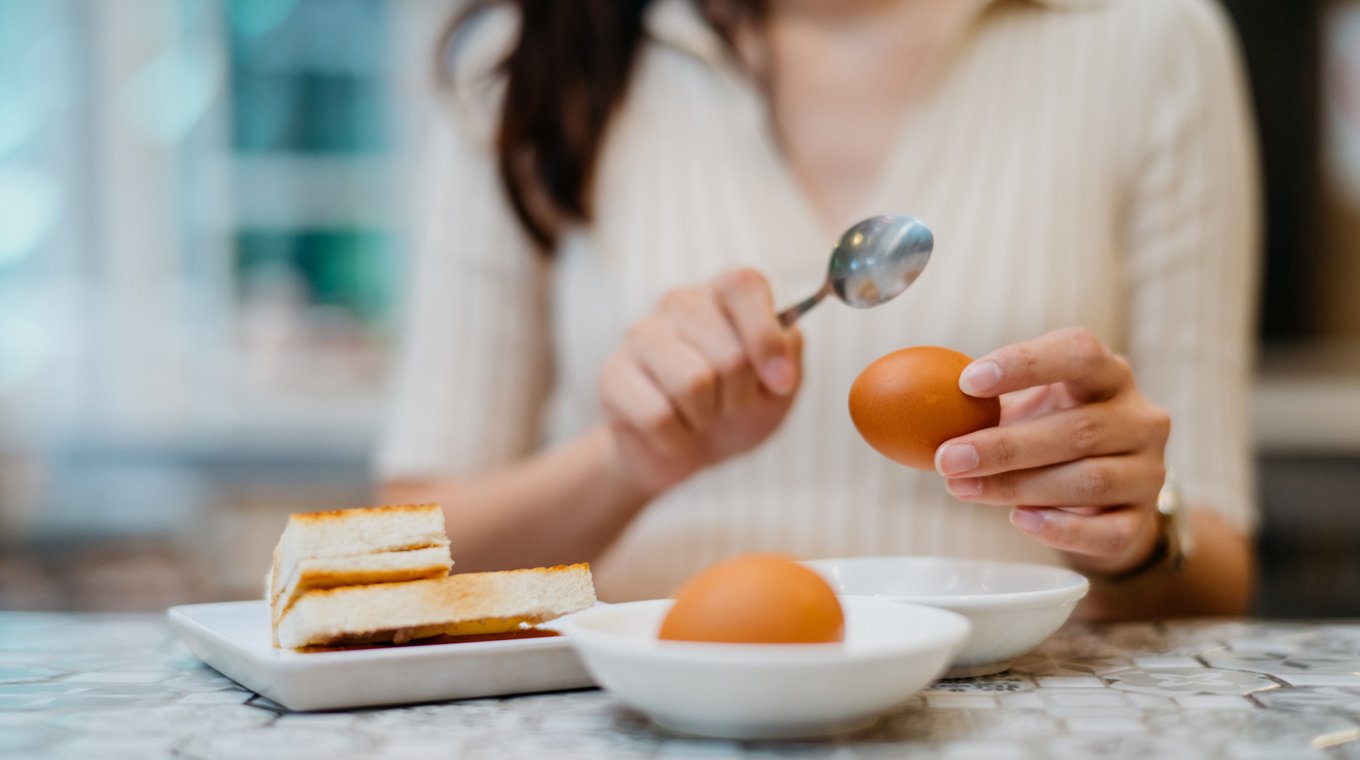In this article
One of the most-feared parts of pregnancy, apart from the actual giving-birth bit, is morning sickness. Movies and pop culture have made seem like such a normal part of pregnancy, and often a person's first indication that they might be pregnant, that many of us consider it as "just one of those pregnancy things" we have to deal with. While 70% of pregnant people do experience morning sickness, that is no reason to just accept the discomfort. It's possible to ease symptoms through diet; choosing high-protein snack foods might help reduce morning sickness symptoms in some cases.
What causes morning sickness?

Morning sickness is the bane of early pregnancy for the 33 percent of pregnant women who actually vomit; nearly all experience some nausea. Worse, the name is often a misnomer; morning sickness can last all day or worsen at night. Rising hormone levels and blood sugar drops appear to cause morning sickness. From one aspect, morning sickness can be seen as a positive sign that your hormone levels are rising appropriately.
Staying hydrated and taking your prenatal vitamins when pregnant is important. Eating small amounts every one to two hours might also reduce nausea and vomiting more effectively than eating a large meal three times a day.
“I think the biggest myth is that if you don’t eat 2,000 calories a day, your baby is going to be harmed,” University of Utah professor Dr. Robert Silver told The New York Times. “Having moms not worry as much about that is probably the single most helpful thing.”
The time-honored recommended foods for morning sickness tend to be complex carbohydrates, such as dry toast or crackers. But protein snacks might actually be just as beneficial. Eating high-protein snacks will also help you meet your increased need for protein during pregnancy; most women need around 60 grams per day.
So, what to eat? High-protein snacks for pregnant women

Smaller meals throughout the day may be easier to tolerate, and there are several high-protein snacks you can incorporate into your daily diet. In the morning, a small snack of peanut butter on crackers followed by breakfast in a few hours, might work better than eating a big breakfast first thing in the morning.
Eating protein at bedtime, or even eating a small snack as you pass through the kitchen on the way to the bathroom in the middle of the night, will help you avoid the drop in blood sugar that might contribute to nausea in the morning.
There's no point in trying to eat a certain food just because it's supposed to make you feel better. What works for one person might not work for another. You might crave spicy foods and find them easier to retain than a nice bland-boiled egg. Just thinking about some healthy protein food choices, such as runny sunny-side-up eggs, might make you sick. Listen to your body; you're unlikely to crave something that's going to make you really ill.
Low-fat, high-protein snacks are likely to settle better than protein foods that include large amounts of fat. Limit your intake of dietary fat, including butter, mayonnaise, or fried foods, if they seem to worsen morning sickness. Your best bet is to have a shelf in your refrigerator dedicated solely to grab-and-go high-protein snacks this way you won't have to spend time prepping when you're hangry. Some quick options include:
- Beef or turkey jerky
- Boiled eggs
- Vegetables and Greek yogurt dip
- Tuna
- Peanut butter and apple slices
- Vegetable and hummus
- Protein bars
Best high-protein foods to combat morning sickness

Research indicates that protein meals can reduce nausea in the first trimester, so in addition to high-protein snacks, meals should consist of quality lean protein if you want to ease the symptoms of morning sickness. Some options include:
- White meat chicken/turkey
- Lean beef
- Beans and legumes
- Tofu
- Low-fat cottage cheese
- Egg whites
- Shrimp and fish
- Edamame
One way to incorporate these foods into healthy family meals is to combine them into a salad or stir fry. Mom of three Julia Jollif shared a vibrant edamame shrimp stir-fry recipe on her blog, A Cedar Spoon.
"I love adding edamame to stir-frys, or setting some cooked edamame out as a snack or to accompany a meal," Jolliff wrote. "My kids go crazy for it, it is packed with high-quality protein and is produced in an earth-friendly way so I can feel good about my family eating it."
Morning sickness typically eases between weeks 16 and 20, so you should start to feel better as your pregnancy progresses. In fact, it's around this time that the sluggishness and exhaustion you felt in your first trimester begin to dissipate, you may be enjoying more energy and motivation during this time.
However, if your morning sickness continues and you find yourself vomiting several times a day every day — to the point where you're becoming dehydrated, lightheaded, dizzy, or weak — it's time to see your doctor. You could have hyperemesis gravidarum, a severe form of morning sickness.
“Morning sickness has the connotation that 'Oh, this is a normal part of pregnancy,' and people don’t think of it as being pathology related to pregnancy," Dr. Sumona Saha told The New York Times. "A lot of women get undertreated or they don’t even seek medical advice for their condition."
Having an open dialogue with your health professionals in place is key through all stages of pregnancy and childbirth, and if something just doesn't seem right it's best to err on the side of caution and consult your physician.




